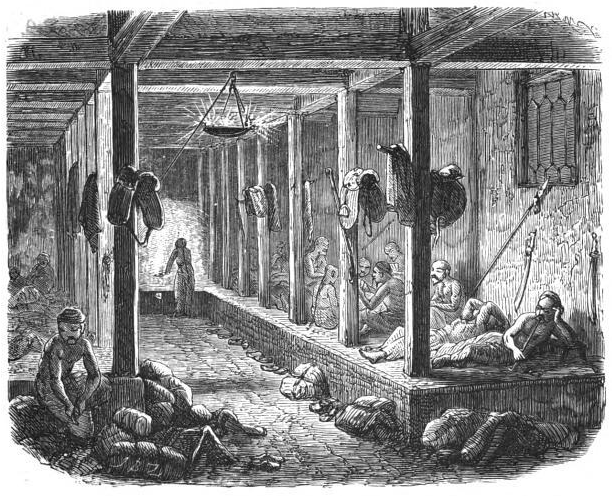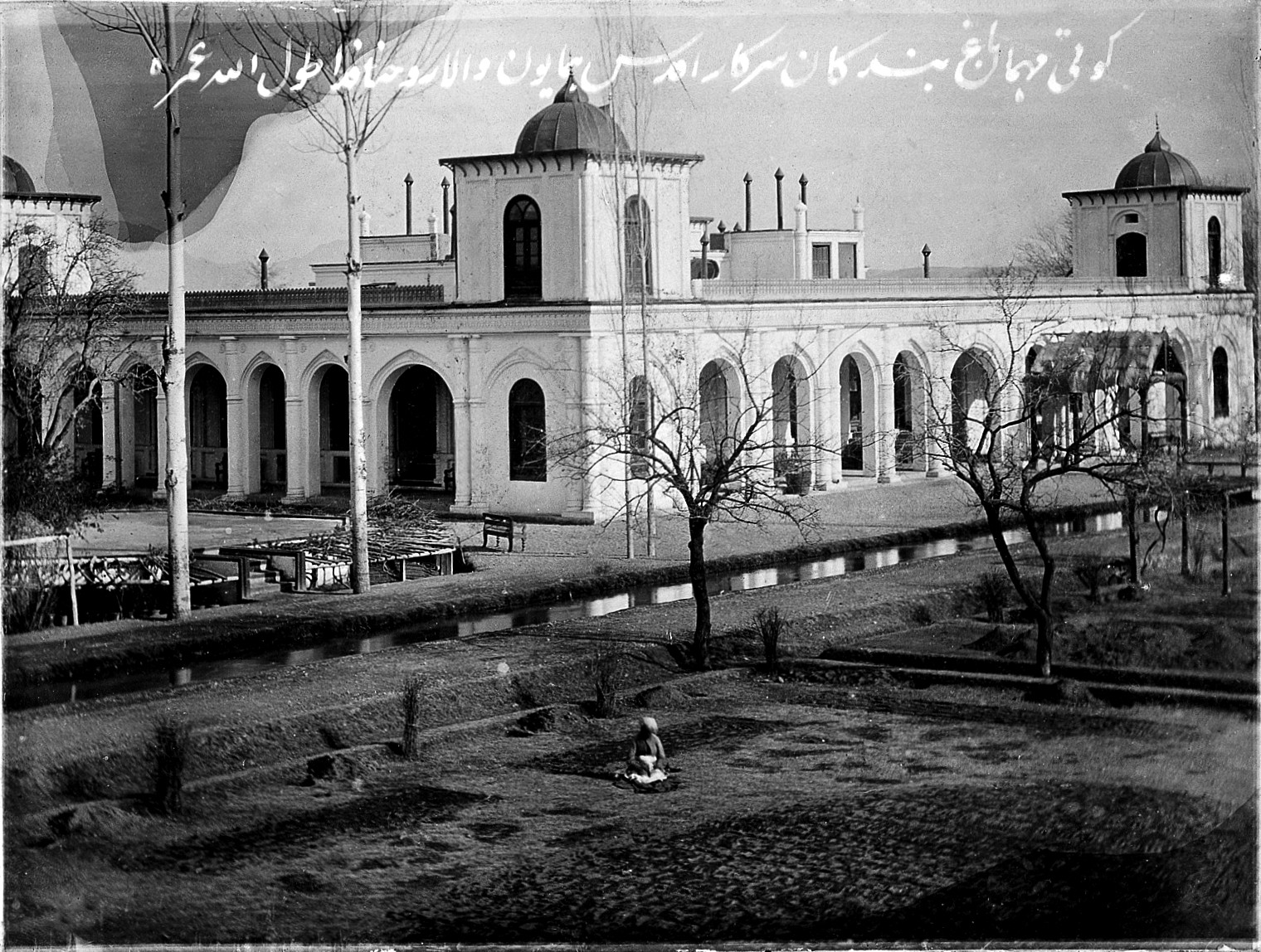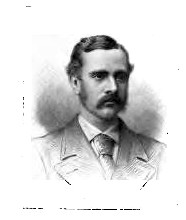|
Ney Elias
Ney Elias, Order of the Indian Empire, CIE, (10 February 1844 – 31 May 1897) was an English explorer, geographer, and diplomat, most known for his extensive travels in Asia. Modern scholars speculate that he was a key intelligence agent for Britain during the Great Game. Elias travelled extensively in the Karakoram, Hindu Kush, Pamir Mountains, Pamirs, and Turkestan regions of High Asia. Life Education He born in Widmore, Bromley, Kent on 10 February 1844, was the second son of Ney Elias (died 1891) of Kensington. Educated in London, Paris, and Dresden, he became in 1865 a fellow of the Royal Geographical SocietyWheeler, Stephen"Obituary: Ney Elias, C. I. E."The Geographical Journal, Vol. 10, No. 1 (Jul. 1897), pp. 101–106.[ and studied geography and surveying under the society's instructors. Travels In 1866, he went to Shanghai in the employment of a mercantile house; and in 1868 volunteered to lead an expedition and examine the old and new courses of the Yellow Riv ... [...More Info...] [...Related Items...] OR: [Wikipedia] [Google] [Baidu] |
Bromley
Bromley is a large town in Greater London, England, within the London Borough of Bromley. It is south-east of Charing Cross, and had an estimated population of 87,889 as of 2011. Originally part of Kent, Bromley became a market town, chartered in 1158. Its location on a coaching route and the opening of a railway station in 1858 were key to its development and the shift from an agrarian village to an urban town. As part of the suburban growth of London in the 20th century, Bromley significantly increased in population and was incorporated as a municipal borough in 1903 and became part of the London Borough of Bromley in 1965. Bromley today forms a major retail and commercial centre. It is identified in the London Plan as one of the 13 metropolitan centres of Greater London. History Bromley is first recorded in an Anglo-Saxon charter of 862 as ''Bromleag'' and means 'woodland clearing where broom grows'. It shares this Old English etymology with Great Bromley in e ... [...More Info...] [...Related Items...] OR: [Wikipedia] [Google] [Baidu] |
Sir Henry Yule
Sir Henry Yule (1 May 1820 – 30 December 1889) was a Scottish Orientalist and geographer. He published many travel books, including translations of the work of Marco Polo and ''Mirabilia'' by the 14th-century Dominican Friar Jordanus. He was also the compiler of a dictionary of Anglo-Indian terms, the ''Hobson-Jobson'', with Arthur Coke Burnell. Early life Henry Yule was born at Inveresk near Edinburgh in Scotland on 1 May 1820. He was the youngest son of Major William Yule (1764–1839) and his wife Elizabeth Paterson (died circa 1827). William Yule had served as an officer in the Bengal army of the East India Company and had retired in 1806. William's uncle was the botanist John Yule FRSE. Elizabeth died before Henry was eight and William moved to Edinburgh with his sons, where Henry attended the Royal High School. In 1833 he was sent to be coached by the Reverend Henry Hamilton at his rectory in the village of Wath near Ripon in North Yorkshire. When Hamilton m ... [...More Info...] [...Related Items...] OR: [Wikipedia] [Google] [Baidu] |
Francis Younghusband
Lieutenant Colonel Sir Francis Edward Younghusband, (31 May 1863 – 31 July 1942) was a British Army officer, explorer, and spiritual writer. He is remembered for his travels in the Far East and Central Asia; especially the 1904 British expedition to Tibet, led by himself, and for his writings on Asia and foreign policy. Younghusband held positions including British commissioner to Tibet and President of the Royal Geographical Society. Early life Francis Younghusband was born in 1863 at Murree, British India (now Pakistan), to a British military family, being the brother of Major-General George Younghusband and the second son of Major-General John W. Younghusband and his wife Clara Jane Shaw. Clara's brother, Robert Shaw, was a noted explorer of Central Asia. His uncle Lieutenant-General Charles Younghusband CB FRS, was a British Army officer and meteorologist. As an infant, Francis was taken to live in England by his mother. When Clara returned to India in 1867 she ... [...More Info...] [...Related Items...] OR: [Wikipedia] [Google] [Baidu] |
Abdur Rahman Khan
Abdur Rahman Khan GCSI (Pashto/Dari: ) (between 1840 and 1844 – 1 October 1901) was Emir of Afghanistan from 1880 to his death in 1901. He is known for uniting the country after years of internal fighting and negotiation of the Durand Line Agreement with British India. Abdur Rahman Khan was the first child and only son of Mohammad Afzal Khan, and grandson of Dost Mohammad Khan, founder of the Barakzai dynasty. Abdur Rahman Khan re-established the writ of the Afghan government after the disarray that followed the second Anglo-Afghan war. He became known as ''The Iron Amir'' because his government was a military despotism. This despotism rested upon a well-appointed army and was administered through officials subservient to an inflexible will and controlled by a widespread system of espionage. The nickname, ''The Iron Amir'', is also associated due to his victory over a number of rebellions by various tribes who were led by his relatives. One source says that during his rei ... [...More Info...] [...Related Items...] OR: [Wikipedia] [Google] [Baidu] |
Karakorum
Karakorum (Khalkha Mongolian: Хархорум, ''Kharkhorum''; Mongolian Script:, ''Qaraqorum''; ) was the capital of the Mongol Empire between 1235 and 1260 and of the Northern Yuan dynasty in the 14–15th centuries. Its ruins lie in the northwestern corner of the Övörkhangai Province of modern-day Mongolia, near today's town of Kharkhorin and adjacent to the Erdene Zuu Monastery, the probably earliest surviving Buddhist monastery in Mongolia. They are part of the upper part of the World Heritage Site Orkhon Valley. History Foundation of empires The Orkhon valley was a center of the Xiongnu, Göktürk, and Uyghur empires. To the Göktürks, the nearby Khangai Mountains had been the location of the Ötüken (the locus of power), and the Uyghur capital Karabalgasun was located close to where later Karakorum would be erected (downstream the Orkhon River 27 km north–west from Karakorum). This area is probably also one of the oldest farming areas in Mongoli ... [...More Info...] [...Related Items...] OR: [Wikipedia] [Google] [Baidu] |
Eastern Turkestan
East Turkestan ( ug, شەرقىي تۈركىستان, Sherqiy Türkistan, bold=no; zh, s=东突厥斯坦; also spelled East Turkistan), is a loosely-defined geographical and historical region in the western provinces of the China, People's Republic of China, which varies in meaning by context and usage. The term was coined in the 19th century by Russian Empire, Russian Turkology, Turkologists, including Hyacinth (Bichurin), Nikita Bichurin, who intended the name to replace the common Western term for the region, Chinese Turkestan, which referred to the Tarim Basin in the southwestern part of Xinjiang during the Qing dynasty, Qing Dynasty. The medieval Persian language, Persian toponym "Turkestan" and its derivatives were not, however, used by the local population. The Uyghur name for the Tarim Basin is Altishahr, which means "Six Cities" in Uyghur. China from the Han dynasty, Han Dynasty to Tang dynasty, Tang Dynasty had called an overlapping area the "Western Regions". The parts ... [...More Info...] [...Related Items...] OR: [Wikipedia] [Google] [Baidu] |
Yakub Beg
Muhammad Yaqub Bek (محمد یعقوب بیگ; uz, Яъқуб-бек, ''Ya’qub-bek''; ; 182030 May 1877) was a Khoqandi ruler of Yettishar (Kashgaria) during his invasion of Xinjiang from 1865 to 1877. He held the title of Atalik Ghazi ("Champion Father"). Spelling variants In English-language literature, the name Yaqub Beg has also been spelt as Yakub Beg (Encyclopædia Britannica), Yakoob Beg (Boulger, 1878) or Ya`qūb Beg (Kim Hodong, 2004). Authors using Russian sources have also used the spelling Yakub-bek (Paine, 1996). A few publications in English written by Chinese authors spell his name ''Agubo'', which is the Pinyin transcription of the Chinese transcription of his name, 阿古柏 (). The first name, Muhammad, is subject to the usual variations in spelling as well. Ya`qūb is an Arabic analogue of Jacob, and Beg is a Turkic noble title. Background Beg's ethnic background is uncertain. According to his biographer, D. Boulger, Beg was a Tajik and a descendant ... [...More Info...] [...Related Items...] OR: [Wikipedia] [Google] [Baidu] |
Kashgar
Kashgar ( ug, قەشقەر, Qeshqer) or Kashi ( zh, c=喀什) is an oasis city in the Tarim Basin region of Southern Xinjiang. It is one of the westernmost cities of China, near the border with Afghanistan, Kyrgyzstan, Tajikistan and Pakistan. With a population of over 500,000, Kashgar has served as a trading post and strategically important city on the Silk Road between China, the Middle East and Europe for over 2,000 years, making it one of the oldest continuously inhabited cities in the World. At the convergence point of widely varying cultures and empires, Kashgar has been under the rule of the Chinese, Turkic, Mongol and Tibetan empires. The city has also been the site of a number of battles between various groups of people on the steppes. Now administered as a county-level unit, Kashgar is the administrative center of Kashgar Prefecture, which has an area of and a population of approximately 4 million as of 2010. The city itself has a population of 506,640, and its urb ... [...More Info...] [...Related Items...] OR: [Wikipedia] [Google] [Baidu] |
Robert B
The name Robert is an ancient Germanic given name, from Proto-Germanic "fame" and "bright" (''Hrōþiberhtaz''). Compare Old Dutch ''Robrecht'' and Old High German ''Hrodebert'' (a compound of '' Hruod'' ( non, Hróðr) "fame, glory, honour, praise, renown" and ''berht'' "bright, light, shining"). It is the second most frequently used given name of ancient Germanic origin. It is also in use as a surname. Another commonly used form of the name is Rupert. After becoming widely used in Continental Europe it entered England in its Old French form ''Robert'', where an Old English cognate form (''Hrēodbēorht'', ''Hrodberht'', ''Hrēodbēorð'', ''Hrœdbœrð'', ''Hrœdberð'', ''Hrōðberχtŕ'') had existed before the Norman Conquest. The feminine version is Roberta. The Italian, Portuguese, and Spanish form is Roberto. Robert is also a common name in many Germanic languages, including English, German, Dutch, Norwegian, Swedish, Scots, Danish, and Icelandic. It can be ... [...More Info...] [...Related Items...] OR: [Wikipedia] [Google] [Baidu] |
Tibet
Tibet (; ''Böd''; ) is a region in East Asia, covering much of the Tibetan Plateau and spanning about . It is the traditional homeland of the Tibetan people. Also resident on the plateau are some other ethnic groups such as Monpa, Tamang, Qiang, Sherpa and Lhoba peoples and now also considerable numbers of Han Chinese and Hui settlers. Since 1951, the entire plateau has been under the administration of the People's Republic of China, a major portion in the Tibet Autonomous Region, and other portions in the Qinghai and Sichuan provinces. Tibet is the highest region on Earth, with an average elevation of . Located in the Himalayas, the highest elevation in Tibet is Mount Everest, Earth's highest mountain, rising 8,848.86 m (29,032 ft) above sea level. The Tibetan Empire emerged in the 7th century. At its height in the 9th century, the Tibetan Empire extended far beyond the Tibetan Plateau, from Central Asian's Tarim Basin and the Pamirs in the west to Yunnan ... [...More Info...] [...Related Items...] OR: [Wikipedia] [Google] [Baidu] |
Augustus Raymond Margary
Augustus Raymond Margary (26 May 1846 – 21 February 1875) was a British diplomat and explorer. The murder of Margary and his entire staff, while surveying overland Asian trade routes, sparked the Margary Affair which led to the Chefoo Convention. Education and early career Margary was born in the city of Belgaum, in British India as the third son of Major General Henry Joshua Margary (d. 1876). Margary was educated in France, at Brighton College and University College in London. Having failed the entrance exam for the foreign service three times, Margary finally passed the exam and was appointed student interpreter in the British consular service in China in February 1867 and left for China the following month. In China, he served in the British Legation in Peking (Beijing), and the British consulates in Taiwan, Shanghai and Yantai. The "Margary Affair" As part of efforts to explore overland trade routes between British India and China, Margary was sent from Shanghai t ... [...More Info...] [...Related Items...] OR: [Wikipedia] [Google] [Baidu] |
.jpg)




.jpg)

_of_Kashgar%2C_73_CE.jpg)

